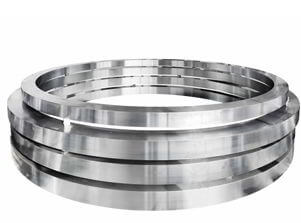Inconel 600, a solid solution strengthened nickel-chromium alloy, is highly regarded for its outstanding resistance to corrosion and oxidation at high temperatures. Forgings made from Inconel 600 offer superior mechanical properties and reliability, making them indispensable in industries where performance under extreme conditions is critical. This blog explores the unique features, applications, and benefits of Inconel 600 forgings, emphasizing their essential role in modern engineering and industrial applications.

Understanding Inconel 600 Alloy
Inconel 600 is characterized by:
- Corrosion Resistance: Inconel 600 exhibits excellent resistance to oxidation and corrosion in high-temperature environments, including resistance to chloride-ion stress-corrosion cracking.
- High Temperature Strength: The alloy maintains its mechanical properties at elevated temperatures, offering stability and reliability in applications up to 2000°F (1093°C).
- Versatility: Inconel 600 is versatile, suitable for use in diverse industries such as aerospace, chemical processing, nuclear reactors, and heat treatment applications.
Key Features of Inconel 600 Forgings
- Exceptional Corrosion and Oxidation Resistance: Inconel 600 forgings provide robust resistance to oxidation and corrosion in both reducing and oxidizing conditions. They withstand acidic environments, alkaline solutions, and high-temperature gases, making them ideal for chemical processing and industrial furnace applications.
- High Temperature Strength: Inconel 600 maintains its mechanical properties at elevated temperatures, including excellent resistance to thermal fatigue and creep deformation. This property is crucial for applications in gas turbines, heat exchangers, and aerospace components.
- Excellent Fabricability and Weldability: Inconel 600 forgings are easily fabricated using standard machining and welding techniques, allowing for the production of complex shapes and components. They can be machined to tight tolerances and welded without significant loss of corrosion resistance.
- Reliability and Longevity: Inconel 600 forgings offer durability and extended service life, requiring minimal maintenance. They provide consistent performance in critical applications, contributing to operational efficiency and safety.
Applications of Inconel 600 Forgings
Inconel 600 forgings are utilized across various industrial sectors for critical applications:
- Aerospace: Used in gas turbine components, combustion chambers, and exhaust systems due to its high temperature strength and oxidation resistance.
- Chemical Processing: Ideal for reactors, heat exchangers, and piping systems handling corrosive chemicals and acids.
- Heat Treatment Industry: Employed in furnace components and radiant tubes for its resistance to high temperature and thermal cycling.
- Nuclear Reactors: Utilized in reactor cores and steam generator tubing for its resistance to radiation and corrosion.
Benefits of Using Inconel 600 Forgings
- High Performance: Inconel 600 forgings offer superior mechanical strength, corrosion resistance, and thermal stability, ensuring reliable operation in extreme conditions.
- Versatility: They excel in diverse applications across industries, providing solutions for challenging environments and complex engineering requirements.
- Cost-Effectiveness: Despite their premium properties, Inconel 600 forgings offer long-term cost savings by reducing downtime, maintenance costs, and component replacement.
Conclusion
Inconel 600 forgings exemplify exceptional corrosion resistance, high temperature strength, and versatility in demanding industrial environments, making them indispensable in modern engineering applications. Their ability to withstand harsh conditions while maintaining structural integrity ensures optimal performance and longevity in critical infrastructure projects. By understanding their features, applications, and benefits, industries can leverage Inconel 600 forgings to enhance operational efficiency, reliability, and sustainability across diverse sectors.





Comments